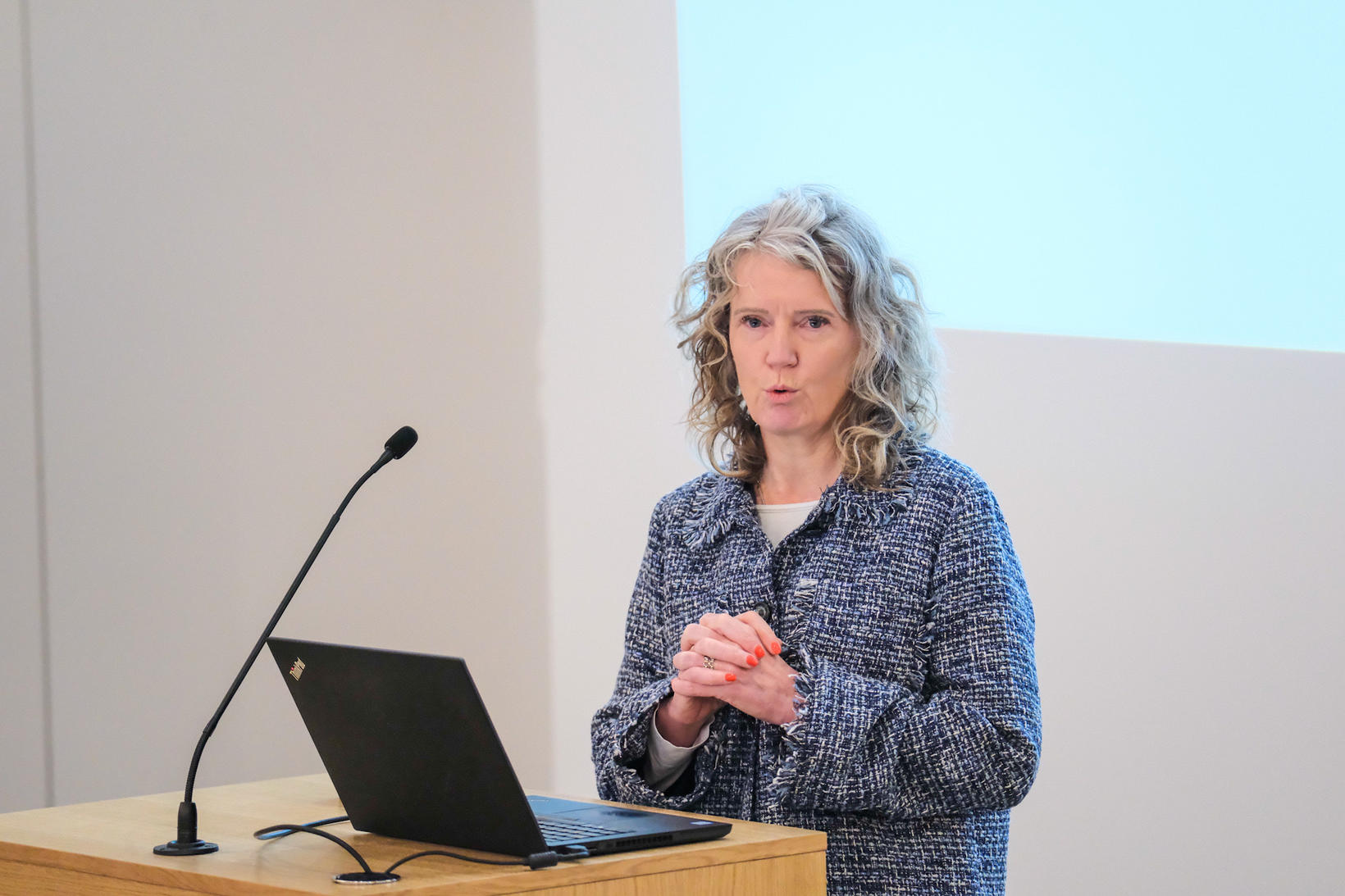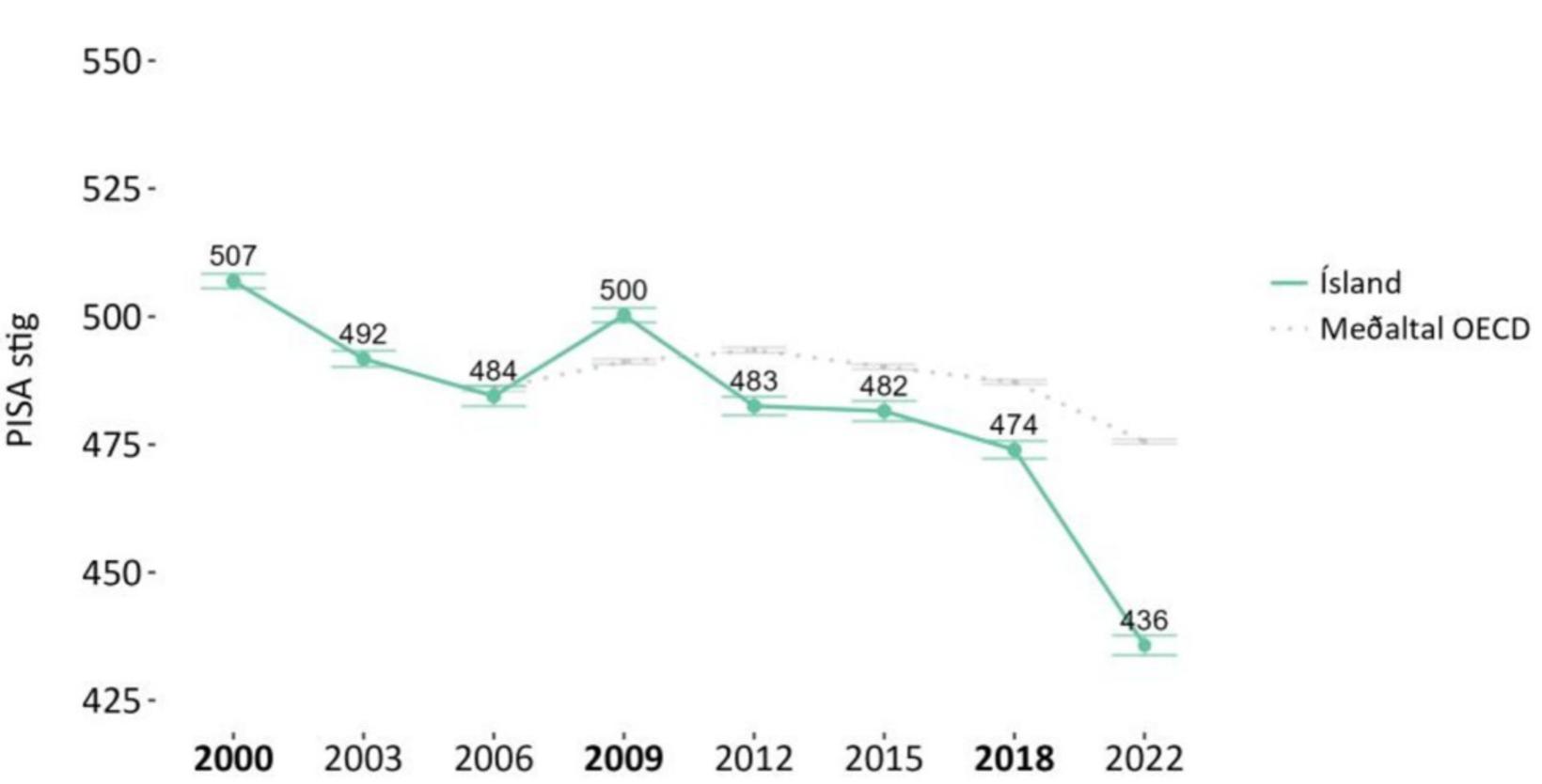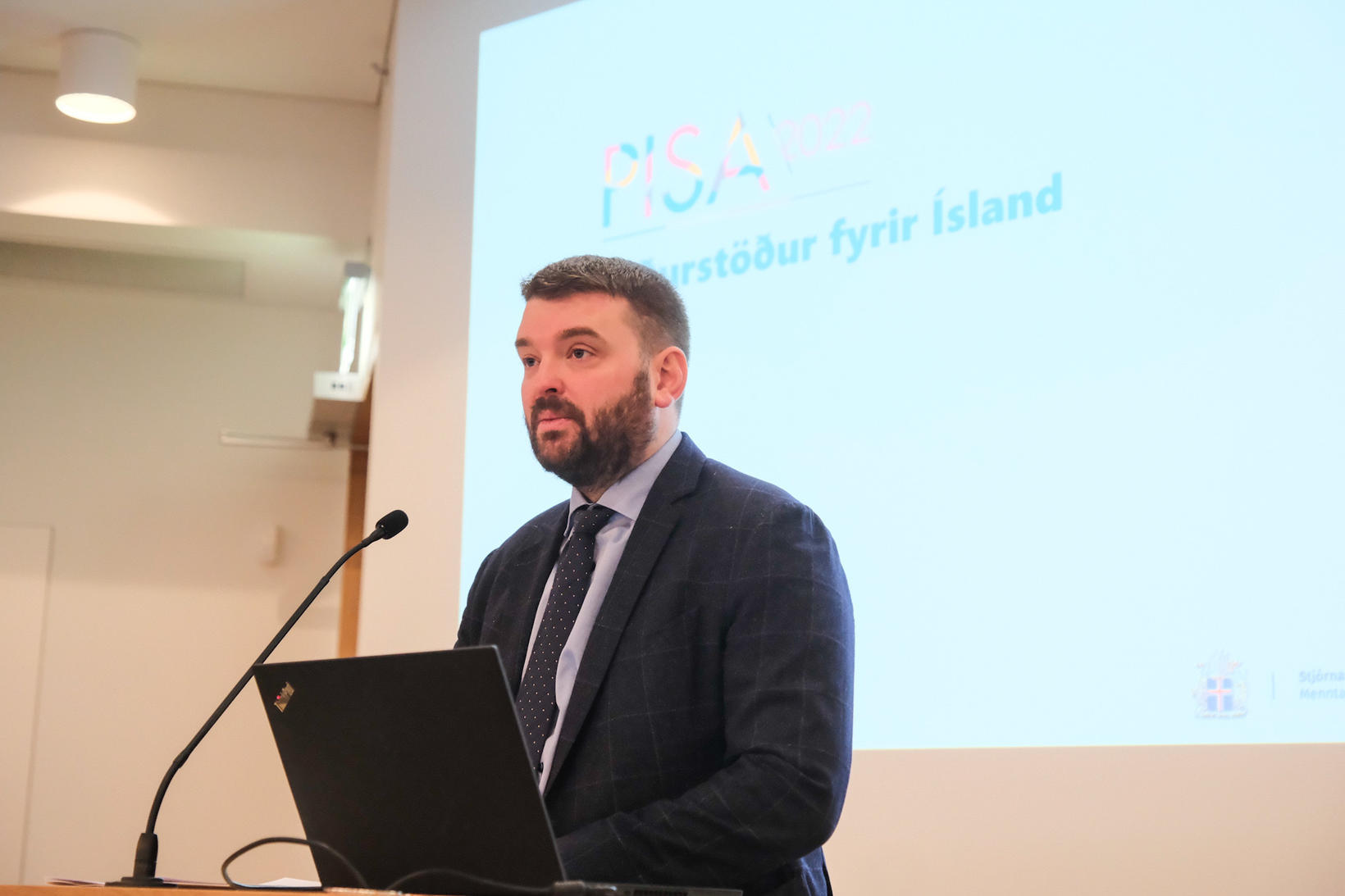Concerning PISA survey showing Icelandic students lagging behind
The latest Pisa survey introduced. Þórdís Jóna Sigurðardóttir director of the Directorate of Education. mbl.is/Kristinn Magnússon
40% of fifteen year old students in Iceland do not have basic skills in reading comprehension. This is stated in the results of the 2022 PISA survey , which was published today.
The proportion of students who achieve this basic competence (approximately 60%) has fallen by 14 percentage points in Iceland since the last survey. In comparison, the percentage in the other Nordic countries has fallen by three to eight percentage points.
In the OECD, 26 % of fifteen year old students do not have basic reading comprehension skills.
The drop from the last survey is similar among girls and boys in Iceland and the gender gap in Iceland is still quite high compared to other countries, the report states.
47% of boys in Iceland do not have basic reading comprehension skills, whereas the rate for girls is 32%. In the last survey in 2018, the rate for boys was 34%, whereas 19% for girls.
The average score of Icelandic students in reading comprehension
The average score of Icelandic students in the PISA survey for the years 2020-2022. The PISA scores are on the left and the green line shows the results of the Icelandic students compared to the dotted line that shows the average score of students from the OECD countries. The results of Icelandic students has been in steady decline in this category for the past decase but this is the worst outcome to date.
Few with excellent comprehension skills in natural science
The proportion of students who have at least basic skills in mathematics is 66%. It is necessary to deal with exams that try on more complex logic or contain information from more than one direction. Unlike students in most countries, girls and boys in Iceland performed equally well in mathematics.
The proportion of Icelandic students with basic skills in natural sciences is now 64% and has decreased by 11 percentage points. Furthermore, there are relatively few students with superior skills in the field in Iceland (2%), compared to the OECD average (7%) and other Nordic countries (9%).
Girls performed better than boys in science literacy in Iceland, as in other Nordic countries, with the exception of Denmark.
“Must work together”
“It is clear from the results of PISA 2022 that governments, municipalities, institutions and associations need to work together to understand the reasons for the negative development in reading comprehension and literacy that is reflected in the survey and to respond,” the announcement states.
The PISA survey measures the ability of 15-year-olds in reading comprehension, natural science and mathematics. The results show that the results of the surveys in the participating countries are worse than in other Nordic countries, and the decrease is greater in Iceland.










